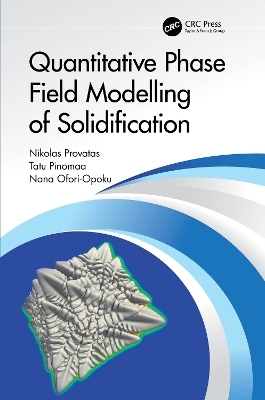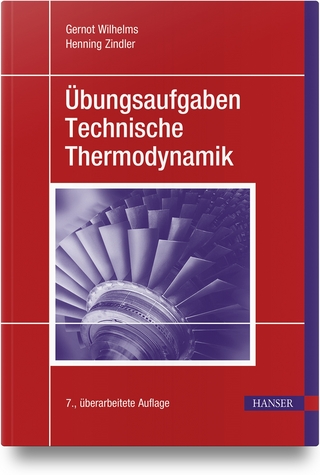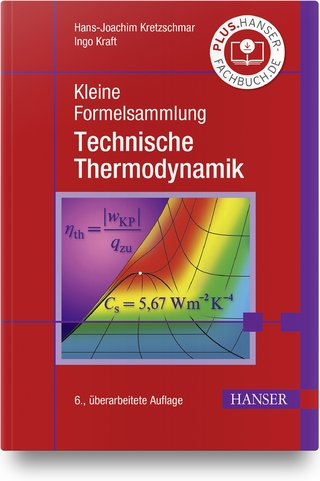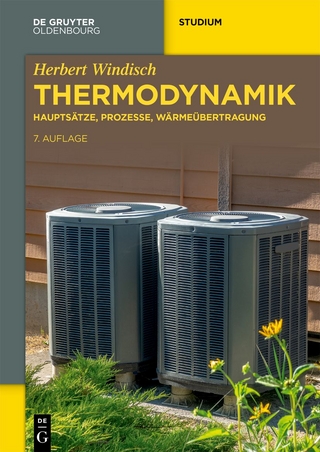
Quantitative Phase Field Modelling of Solidification
CRC Press (Verlag)
978-1-032-06888-6 (ISBN)
This book will be of interest to graduate students and researchers in materials science and materials engineering.
Key Features
Presents a clear path to develop quantitative multi-phase and multi-component phase field models for solidification and other phase transformation kinetics
Derives and discusses the quantitative nature of the model formulations through matched interface asymptotic analysis
Explores a framework for quantitative treatment of rapid solidification to control solute trapping and solute drag dynamics
Nikolas Provatas is a professor of physics at McGill University and holds a Canada Research Chair (Tier 1) in Computational Materials Science. He is also the Scientific Director of the McGill High Performance Computing Centre. From 2001-2012, he was a professor of Materials Science and Engineering at McMaster University. His research uses high-performance computing, dynamic adaptive mesh refinement techniques, condensed matter physics and experimentation to understand the fundamental origins of nano-microstructure pattern formation in non-equilibrium phase transformations, and the role of microstructure in materials processes. He has made numerous scientific contributions to the understanding of length scale selection in dendritic solidification and meta-stable phase formation in solid-state transformations in metal alloys. Nana Ofori-Opoku is a Research Scientist at Canadian Nuclear Laboratories Ltd. He received his doctorate in materials science from McMaster University, where he explored computational models for microstructure evolution in materials. He did his postdoctoral work at McGill University, followed by a NIST-CHiMaD fellowship at Northwestern University and the National Institute of Standards and Technology. His research continues to develop theoretical and computational tools to study microstructure evolution in nuclear materials and the dynamics of phase transformations. Tatu Pinomaa is a Senior Scientist at VTT Technical Research Centre of Finland Ltd. He received his doctor of science (tech) degree from Aalto University (Finland), where he developed phase field modeling techniques to investigate rapid solidification microstructures in metal additive manufacturing conditions. In his current research, he combines various computational approaches to predict the formation, evolution, and micromechanical response of metallic microstructures for industrial applications.
1. A Brief History of Phase Field Modelling. 2. Overview of the Book. 3. Recap of Grand Potential Thermodynamics. 4. Grand Potential Phase Field Functional. 5. Phase Field Dynamics. 6. Re-Casting the Phase Field Equations for Quantitative Simulations. 7. Equilibrium Properties of Grand Potential Funcional. 8. Thermal Fluctuations in the Phase Field Equations. 9. Special Cases of the Grand Potential Phase Field Model. 10. Application: Phase Field Modelling of Ternary Alloys. 11. Interpreting Asymptotic Analyses of Phase Field Models. 12. The Regime of Rapid Solidification. 13. Modelling Continuous Growth Kinetics in the Diffuse Interface Limit of the Grand Potential Phase Field Equations. 14. Applications: Phase Field Simulations of Rapid Solidificaation of a Binary Alloy
| Erscheinungsdatum | 04.11.2021 |
|---|---|
| Zusatzinfo | 6 Line drawings, black and white; 5 Halftones, black and white; 11 Illustrations, black and white |
| Verlagsort | London |
| Sprache | englisch |
| Maße | 156 x 234 mm |
| Gewicht | 260 g |
| Themenwelt | Naturwissenschaften ► Biologie |
| Naturwissenschaften ► Physik / Astronomie ► Thermodynamik | |
| Technik ► Maschinenbau | |
| ISBN-10 | 1-032-06888-4 / 1032068884 |
| ISBN-13 | 978-1-032-06888-6 / 9781032068886 |
| Zustand | Neuware |
| Haben Sie eine Frage zum Produkt? |
aus dem Bereich


